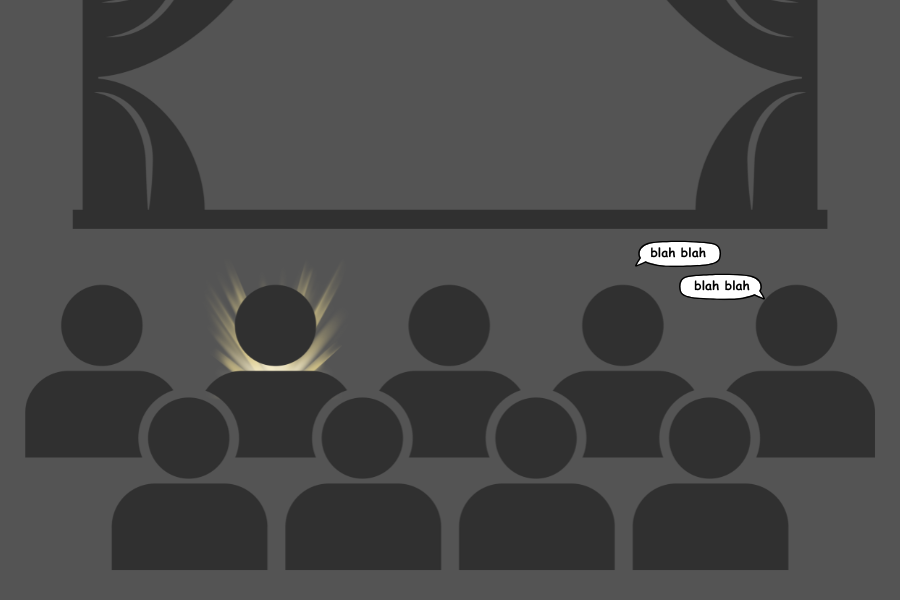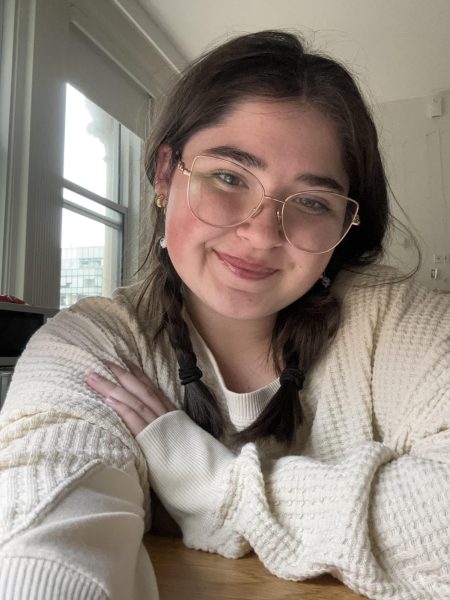The First Amendment of the United States Constitution protects our freedom of speech, and with that, the freedom of the press.
In a time where censorship seems so prevalent, with a president performing anti-press tactics like avoiding questions from particular news and media organizations that may result in hostile or combative answers, using our voice to the fullest extent seems like a must.
A new method is hot in the press, and that is not avoiding questions during a conference, but refusing to answer or answering indirectly in one-on-one interviews.
JD Vance got to showcase this new maneuver against former White House Communications Director for President Bill Clinton, George Stephanopoulos, during a live interview on ABC News Oct. 12. During the interview, Stephanopoulos questioned Vance about Tom Homan and a $50,000 bribe in an FBI sting operation back in September 2024.
Vance tried to push off the question, claiming Homan was innocent, before accusing Stephanopoulos of asking unimportant questions.
“I think the American people would benefit much more from [talking about the shutdown] than from you going down some weird left-wing rabbit hole where the facts clearly show that Tom Homan didn’t engage in any criminal wrongdoing,” said Vance, reported by Daily Mail.
Stephanopoulos fired back that the question was nothing more than that, a question, and one he was clearly refusing to answer. Before Vance could form a rebuttal, the veteran anchor thanked the vice president for his time and cut to a commercial break. A move that I think not only put Vance in his place, but represented a greater idea in the media that journalists should not be seen as someone you can merely avoid or choose not to answer because you do not feel like it.
The right to speak freely, and write and report seems simple, but one thing that is needed for a well-informed democracy and country is communication. Communication and respect are not well valued in our political climate, and sprouting forth from that are articles grasping at straws for information.
Journalists cannot serve the public, providing them with the latest news on our government, when officials will not cooperate. As well as the fact we as writers cannot expect our audiences, U.S. citizens and readers beyond our borders, to listen and trust us when we cannot get our vice president to answer a yes or no question.
It is within our right to choose not to speak just as much as it is to use our voice. Why should we waste our time on interviews that lead to nothing but arguments regarding what “side” we are on, when really we should all be fighting for the same cause?
President Donald Trump refused to take any questions from an ABC News correspondent the days following the Vance and Stephanopoulos broadcast.
“You’re ABC fake news. I don’t take questions from ABC fake news after what you did with Stephanopoulos to the vice president of the United States,” said Trump, reported by Deadline.
As a writer from a college paper, this may seem like something silly to worry about, except that this could be a journalism student’s future. This could be my own future, and one that I fear as I approach graduation semester by semester. I feel as if I am entering a job market that is labeled as unstable, which is not news, but not because artificial intelligence is going to take over my job, or that Sunday papers are a thing of the past, but that there will not be anybody left for me to interview without restrictions.
Avoiding conversation as well as debates that mirror a child’s argument could be coverage for the coming elections. It is simply something we cannot predict, but also not rule out.
A great example of free speech change is the newly implemented restrictions on media coverage inside the Pentagon, where journalists who reported on the U.S. military turned in their access badges. New terms were implemented, stating that there were limits inside the building preventing writers from going places without an official escort.
The secrecy and intimidation tactics were not something many wanted to deal with, so Oct. 15, a majority of prominent news networks pulled out of the Pentagon with the exception of the conservative outlet One America News Network, which agreed to the terms.
The only outlier to OANN’s cooperation was Gabrielle Cuccia, a reporter who historically is not quiet about her support for President Trump and his administration. Cuccia found herself without a job or professional platform after posting her thoughts on Defense Secretary Pete Hegseth on Substack.
“The Pentagon wants to paint a picture that journalists are freely roaming classified spaces, sneaking into [secure areas] and leaking top-secret information. And that is simply not true. There are security cameras everywhere, protocols in place and quite frankly, it would be painfully obvious if a reporter was in a space they didn’t belong,” said Cuccia, reported by AP News.
This is a prime example of internal discourse beyond just the right and left-wing branches of politicians. Nevermind the fighting across Congress, stealing blue and red seats to try and get one’s own opinions and legislation passed, but conservatives are arguing within themselves which leaves me wondering how many arguments are going to be made before there is some sort of resolution.
Why speak at all when it’s clear our voice is meant to be impacted or influenced by those around us? It becomes a tainted observation, a tainted quote and a tainted story. The right to free press should not mean the right to be followed around the very building you have always worked in, just so the defense secretary of the U.S. can feel included.
The words “biased” and “objective” get thrown around like hot cakes in the news room. Questions like who can write what story, or what sides and sources can we get for it to be well-rounded? Instead of great reporting and inclusive storytelling, we are getting roadblocks and secrecy.
As writers, what we should be worried about is relying on the most accurate information in the most timely manner, not how we are going to jump through all these hoops and ask the right questions so a public official will talk about something other than what they want to boast about.
There are countries without free speech and journalists being killed for simply speaking their truth. I am not sure when we became a country so ill-informed, not because of an overinflated ego, but out of frustration because we can not get the answers to the questions we simply asked.
Student journalism is already being threatened as papers across the country are being censored or managed by members of the administration.
Indiana University fired Jim Rodenbush, the advisor of their student paper, after he refused to enforce the no-news rule for their homecoming paper edition. In the past semesters, the newspapers’ physical editions had been reduced, leaving only paper copies for major event dates around campus. This included their homecoming week.
The Daily Student, Indiana University’s student paper, was told to exclude a news section from these editions, leaving them to exclusively be published online.
As one of the most heavily funded college papers in the country, it shocked me that they ran nearly as many print editions as smaller colleges, even with their six-figure budget. Following recent AP News articles involving the censorship of their students, it cleared up my confusion.
Between losing platforms for simply writing the facts, or being unable to report because of a lack of material due to uncooperative sources, I am scared for the future of news, if not the future of journalism as a whole. I think you should be too.










